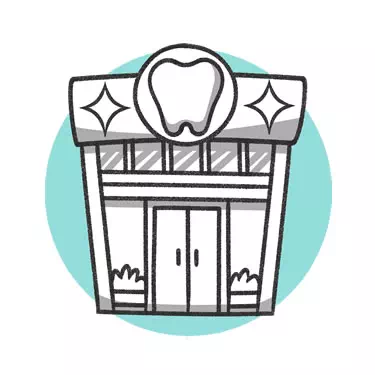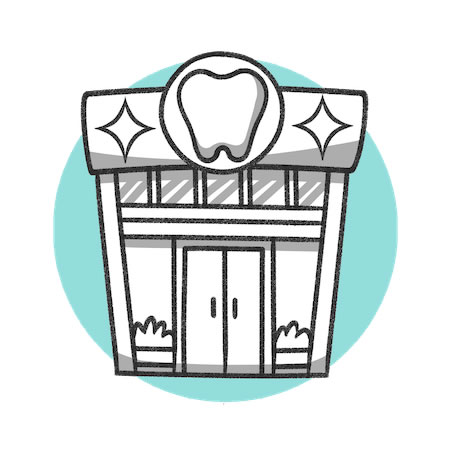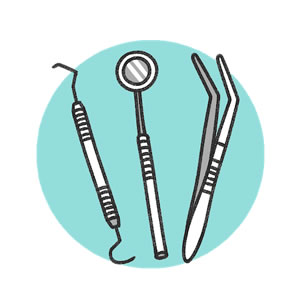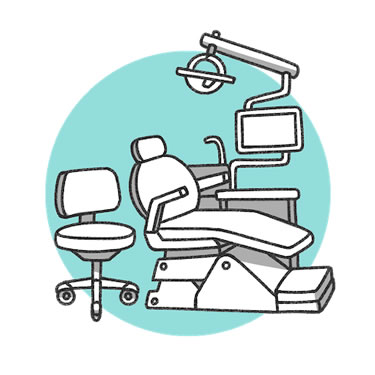Dentists and practice owners are in the business of fixing things — be it administrative or procedural. We are taught to care for our patients and manage our staff’s workload so that they aren’t anxious, stressed, or overwhelmed. Consequently, we may overlook our own needs, especially when burnout affects our mental health. The key is to recognize our signs of stress and anxiety, find the support we need, and know how to manage our mental health — before it becomes too hard to handle.
Here are 5 tips to better manage your mental health as a dental provider.
1. Be Prepared and Proactive
Practicing dentistry presents a lot of unplanned challenges. Find stability in your operation by preparing and working with your team to address these challenges. For example, a team huddle can help your team prepare for a treatment day.
Have coping tools available for you when you or your team needs them. For example, during stressful moments, it can be helpful to practice a breathing exercise (we like box breathing), meditate for 5-10 minutes, or take a short walk outside. Know that these tools are available to you whenever you begin to feel overwhelmed, stressed, or anxious. Better yet, schedule time in your day to do one of these activities and see how you feel.
2. Practice Self-Care
As a provider, you spend a lot of time taking care of others. It’s equally as important to take care of yourself as well. Establish a self-care regimen to keep your body and mind feeling balanced and in good health.
Did you know that your physical body takes on much of your stress? Scan your body. Be aware of where you hold tension. Is your jaw clenched? Forehead knitted? Shoulders tensed? Take a long deep breath. As you gently exhale, feel your body unwind, your jaw release, your forehead relax. Shrug your shoulders up and down a few times and then let them settle down your back. Do this scan in between every patient. Know that every time you release you are resetting your body — and your stress level — to be more manageable.
It is also important to nourish yourself. Plan time to eat healthy meals that make you feel good after. And don’t forget to hydrate! Bring a (reusable) water bottle with you or have one in your office. Keep it visible so that every time you see it you are reminded to take a sip.
Invest in the right office set-up. The correct ergonomics can make a world of a difference in how you feel. Buy a comfortable office chair, keep your desk uncluttered, have plants around you, and ensure that the color scheme of your office is calming and not overwhelming.
3. Find a Healthy Work-Life Balance
Feeling stressed? Reduce your caseload and take more breaks. Many dentists only work 4 days a week or less. Know that your mental health is a priority and you deserve to spend time outside of work doing what makes you feel good.
Create opportunities to let your mind relax. Leave your practice for lunch or a short walk if you can, take advantage of 3-day weekends, and go on extended vacations. Sometimes when things feel stuck, all you have to do is unplug and plug back in again.
4. Practice Mindfulness
We are often taught in dental school to be caring and supportive to our patients (who are often in discomfort or pain), however, there is a difference between being empathetic and sympathetic. Remember that your patient’s pain is not yours. Try not to absorb all your patient’s pain and complaints, and instead focus on how you are uniquely qualified to help them with their dental troubles.
It’s also important to be empathetic with ourselves. So many of us push aside our feelings and distract ourselves with work or hobbies. When you feel stressed, ask yourself, why are you feeling this way? Do you need additional assistance? Did you skip a meal? We can’t always solve our problems easily but when we’re mindful of our triggers, we can start working towards solutions to better support ourselves — in the present and the future.
Remember that stress and anxiety can be healthy – it’s your brain’s way of telling you to slow down and explore what’s going on.
5. Seek Help When You Need It
Even the most talented Olympic athletes don’t win medals without a LOT of support. Who are your coaches and teammates? Do you have the right staff to support your practice so that you can distribute responsibilities and lighten your load? Do you have people you can ask or hire for guidance and expert advice? Do you have a community of professionals you can look towards for advice and empathy? Build those relationships now so that they are there for you when you need them.
It can also be helpful to talk to a trusted friend, family member, or mental health professional. Your vulnerability can often open doors to greater understanding, connection, and support.
Whether you are building your mental health toolkit for now or later, these tips are here to help.






